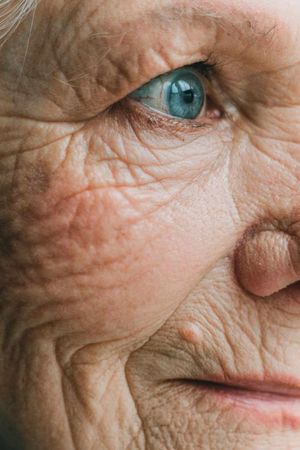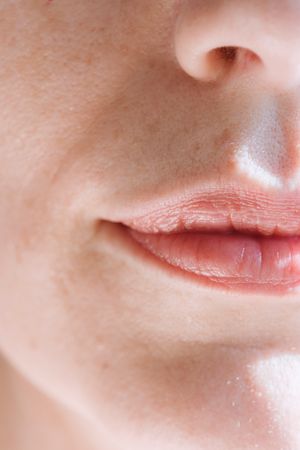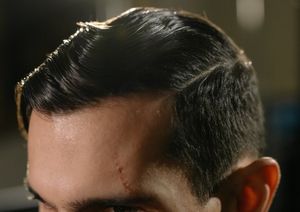Skin Resources
My Skincare Routine
Dr. Jeffrey Harmon
It is challenging to identify skin care products based on strong clinical evidence and a strong safety profile. The skin care products I currently use are not perfect. Therefore, my choices may not be well-tolerated or beneficial to others. Every individual’s skin is different. Consider an evaluation by a dermatologist to help determine the best tolerated, safest, and most effective products for your face. It is important to seek not only a fellowship-trained but also a double board-certified facial plastic surgeon if you have aesthetic concerns about your face and/or neck.
moreCosmetic Laser Treatments: An Explainer
Dr. Jeffrey Harmon
Laser treatments can address specific concerns about the skin on the face and neck. It is important to seek not only a fellowship-trained but also a double board-certified facial plastic surgeon to help determine whether a laser treatment is appropriate for your concerns.
moreSkin Care After Laser Resurfacing of the Face
Dr. Jeffrey Harmon
Laser resurfacing of the face can address wrinkles and other irregularities of the tone and texture of the skin resulting in a softer, more youthful appearance to the face. Good skin care after treatment with a resurfacing laser is essential. The following post describes this process. It is important to seek not only a fellowship-trained but also a double board-certified facial plastic surgeon if you have aesthetic concerns about your face and/or neck.
moreDry Skin and Moisturizers: An Explainer
Dr. Jeffrey Harmon
It is important to maintain the moisture of your skin, especially during the winter months with its cold, dry air. This blog post does not promote a specific skin product. Instead, it is intended to empower those interested to better understand some of the ingredients in moisturizers. Our hope at Harmon Facial Plastic Surgery is that this will help individuals make better-informed choices. It is important to seek not only a fellowship-trained but also a double board-certified facial plastic surgeon if you have aesthetic concerns about your face and/or neck.
moreRetinoids versus Retinols: What's the Difference and Which is Better?
Dr. Jeffrey Harmon
Retinoids are derived from Vitamin A, which a common vitamin in human skin. They can be naturally derived or synthetically (i.e., lab) derived. Most retinoids are applied to the skin (i.e., topically) to treat age-related changes to the skin and/or prevent age-related changes to the skin. Those changes, called photoaging, include wrinkles, dark spots, and texture irregularities. Retinoids exert their effects by encouraging the formation of youthful collagen and discouraging the breakdown of collagen in the skin. Retinol is a form of retinoid. Tretinoin is another form of retinoid. Retinoids achieve their effect by acting as hormones. They are easily absorbed by the skin, which is unique compared with other products applied to the skin. This likely contributes to their effectiveness. It is important to have a discussion with a physician as to whether a retinoid such as retinol or tretinoin is appropriate for your face. It is important to seek not only a fellowship-trained but also a double board-certified facial plastic surgeon if you have aesthetic concerns about your face and/or neck.
moreHow I Work with Dermatologists to Repair Skin Cancer Defects
Dr. Jeffrey Harmon
It is a privilege to team up with dermatologists to assist in the treatment of skin cancer. As a facial plastic and reconstructive surgeon, I am enlisted to repair particularly sensitive, aesthetically important areas of the face, such as the nose. It is important to seek not only a fellowship-trained but also a double board-certified facial plastic surgeon if you have aesthetic concerns about your face and/or neck.
moreThe Effects of Cigarettes on Healing
Dr. Jeffrey Harmon
Smoking cessation for many weeks prior to and after surgery is essential to maximize healing and reduce the risks associated with poor wound healing. The components of cigarettes that affect healing include nicotine, carbon monoxide, and hydrogen cyanide. It is important to seek not only a fellowship-trained but also a double board-certified facial plastic surgeon if you have aesthetic concerns about your face and/or neck.
moreScar Treatment: An Explainer
Dr. Jeffrey Harmon
Scar treatment can address specific concerns about the appearance of a scar on your face and/or neck. There are four general categories of treatments for scars, each of which may or may not benefit you. It is important to seek not only a fellowship-trained but also a double board-certified facial plastic surgeon to help determine whether - and which - scar treatment is appropriate for your concerns.
moreIs Silicone Gel Effective in Improving the Appearance of Surgical Incisions?
Dr. Jeffrey Harmon
You are likely aware of silicone-based scar gels by seeing ScarAway© or another over-the-counter brand in your local pharmacy. Surgeons in all specialties as well as dermatologists recommend these scar gels after procedures to promote healing and reduce the risk of scarring. But how well do they work? I reviewed the literature in order to determine whether silicone gels, placed post-operatively after surgical incisions have healed, can help reduce the appearance of incisions. Not surprisingly, quality studies are difficult to find. It is important to seek not only a fellowship-trained but also a double board-certified facial plastic surgeon if you have aesthetic concerns about your face and/or neck.
There are two ways of describing an abnormal scar, hypertrophic and keloid. There may seem to be little distinction between the two. However, the underlying process that causes them to form is radically different. Basically, a hypertrophic scar remains within the boundaries of the original incision or injury. A keloid, on the other hand, expands beyond it. The goal of silicone gels and patches are to not only reduce the risks of hypertrophic scar or keloid formation, but also to reduce the redness of an incision and accelerate the fading of the appearance of a scar.
moreIs Bakuchiol a Safe, Effective Alternative to Over-the-Counter Retinols for Aging Skin?
Dr. Jeffrey Harmon
The English-language literature on the use of the natural ingredient bakuchiol topically as an alternative to retinols in treating age-related changes to the skin (i.e., photoaging) will be reviewed. It is important to seek not only a fellowship-trained but also a double board-certified facial plastic surgeon if you have aesthetic concerns about your face and/or neck.
more









